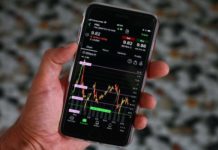The stock market opened its first trading session on July 28, 2000 on HoSE, with only two public firms, coded REE and SAM.
By June 2020, there were 380 stocks on HoSE with more than 2.3 million investor accounts and market capitalisation of over 2.8 quadrillion VND (120.4 billion USD), or 57 percent of GDP.
The maturity of Vietnam’s stock market is marked by the increasing interest of foreign investors, who are rising in number each year by 10 to 15 percent. As of the end of 2019, there were nearly 34,000 foreign investor accounts, with nearly 21 percent of market capitalisation. This figure, according to analysts, is still modest.
Another remarkable feature of Vietnam’s stock market is its contribution to the process of restructuring the economy, becoming a dynamic and efficient capital mobilisation and allocation channel for the economy.
Total mobilised capital so far is estimated at over 295,000 trillion VND. During the 2010-2015 period, mobilisation increased more than five-times compared to 2004-2009.
The amended Securities Law passed by the National Assembly in November 2019 will be an important foundation for Vietnam’s stock market to operate more efficiently and transparently.
The stock market targets capitalisation representing 120 percent of GDP with bonds representing 55 percent by 2025./.



